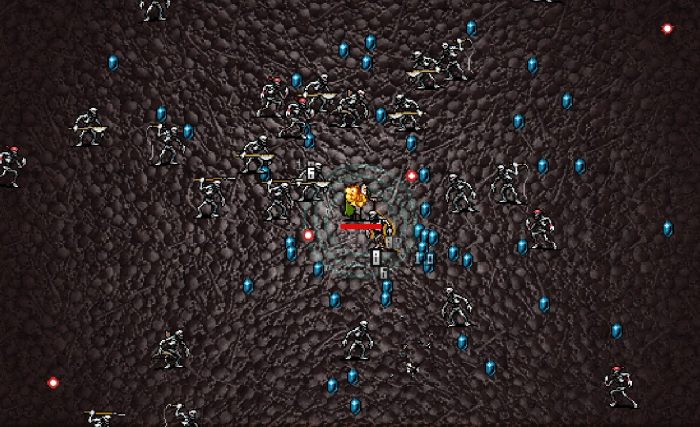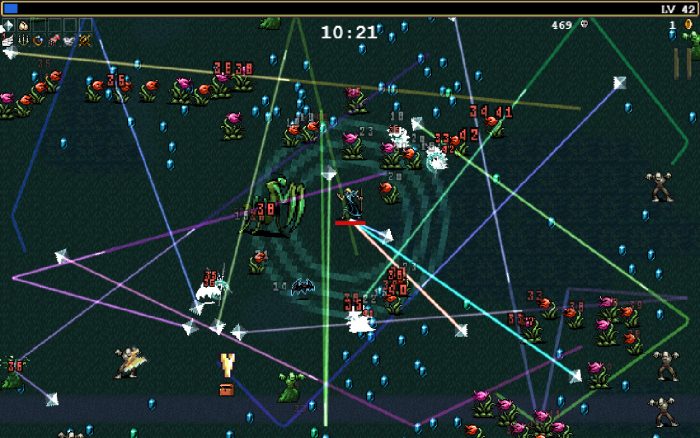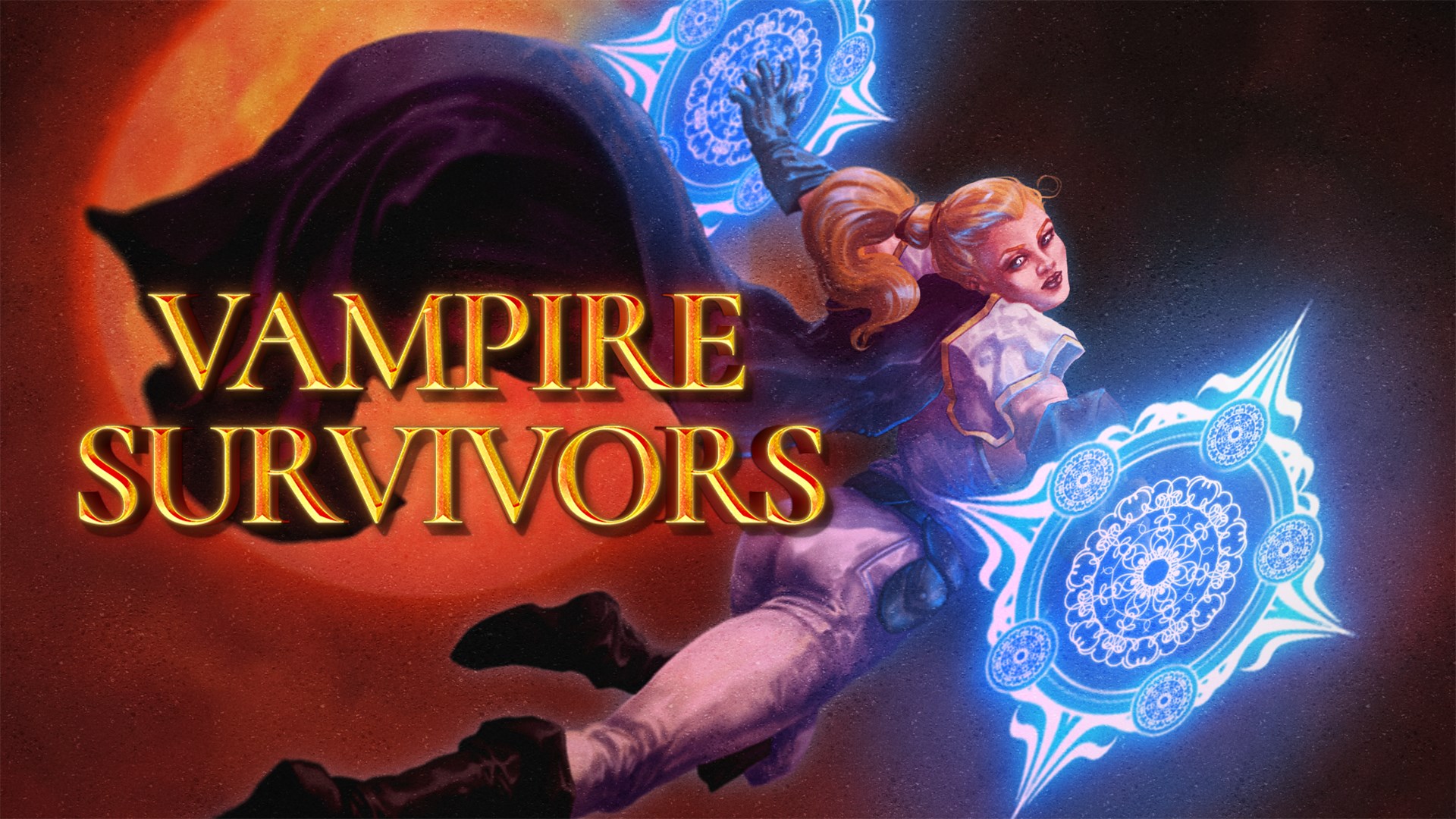I finally got my Steam Deck in the mail a couple weeks ago. After booting it up and browsing through my library to see which games I could install, I remembered that Vampire Survivors was something people really seemed to enjoy. At $3, it’s a no brainer. Let’s download that sucker and get rolling. It’s the second most played game on the deck, and I will not deny myself this joy.
The gameplay loop is simple. You play a stage by upgrading your weapon, gathering more weapons and accessories by leveling up or finding treasure chests, collecting coins, and after you die (you will die – either by monsters killing you, or Death coming to get you at the end of the time limit) you spend the coins on permanent upgrades and character unlocks. You also unlock items and upgrades through certain achievements performed while playing a stage. It’s simple. It’s fun. It makes my brain go, “Mmmm yes here’s some dopamine, I like this.”
The most direct comparison to Vampire Survivors is probably a clicker game. The best part about clickers is watching the numbers go up, collecting resources, and using those resources for permanent upgrades that allow you increase your resource collecting power. To watch the numbers go up more.
Clickers are a generally passive genre, with fairly limited choices, but what’s compelling about them is the feeling of accomplishment. You’ve gathered all these things, all these upgrades, by simply investing time and attention. No skill required. You don’t need to practice these games. You just have to show up and click a few things. It reminds me a lot of investing capital for what people call “passive income.”

But Vampire Survivorsisn’t a clicker. It requires some skill – you have to move your character around to dodge enemies and make choices to synergize the items you acquire. Sometimes items just work well together like King Bible, an item that spins around you to damage enemies, and the Bracers, which increase the speed of any projectile you have, effectively turning you into a human buzzsaw once these items are fully upgraded. Each session is 30 minutes or less. There’s even a final boss. Clickers seem to be endless, or at least for some of them, there are “prestiges” where you reset the game to earn another resource to spend on other, different permanent upgrades.
Even though the experience is more active than a clicker, you still don’t do much. You could control the game with an Atari 2600 controller – just a joystick and a button. I don’t feel as though I’m using much skill to progress.A lot of runs come down to how lucky you are, and even then, you don’t need much luck. So, I find myself wondering, “Is this enriching my life in any way? I’m just watching the numbers go up. I’m not experiencing any story. I’m not gaining any sort of gaming skills. I’m not part of any Vampire Survivors community. It just makes my brain feel good. But why?”

I don’t necessarily have an answer to that, and I think that’s ok. I’m sure I could delve into some research about how progression systems in video games affect pleasure in the brain, or the psychological effects of accumulation and growth make us as humans feel good. But I don’t think I need to.
After two weeks, I’ve put in over 25 hours into Vampire Survivors, and I’ve unlocked 99 out of 129 achievements. I don’t plan on stopping either. I find myself easily booting this game up, as opposed to games I want to finish that are more narrative or more multiplayer focused. I ask myself, “Do I want to invest my time into something I have to think about, or do I just want to turn my brain off and watch my character fling 10,000 knives into wolfmen?” Maybe after a long day, I just want the latter.
Vampire Survivors 1.0 launches on Steam later this month.


No Comments